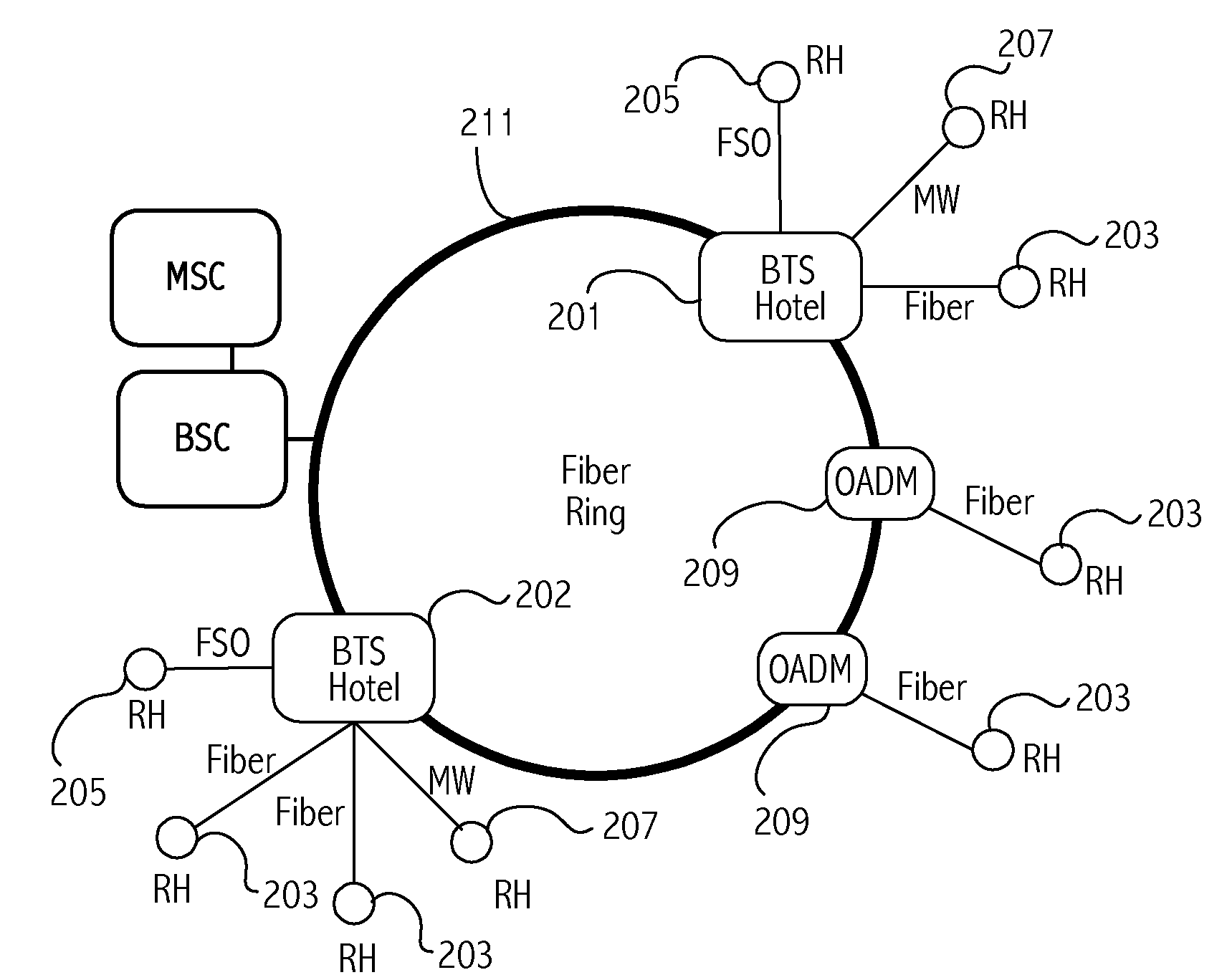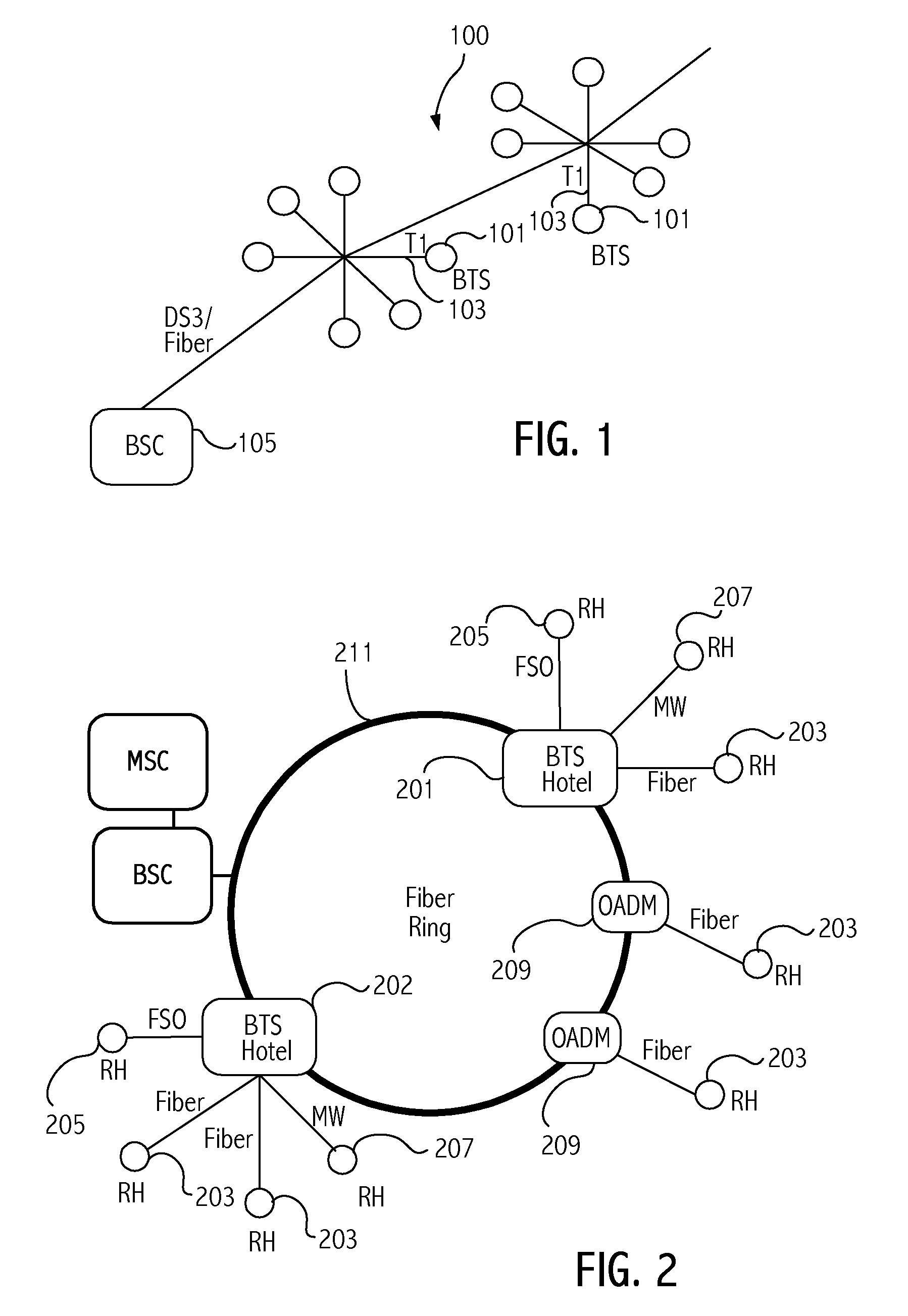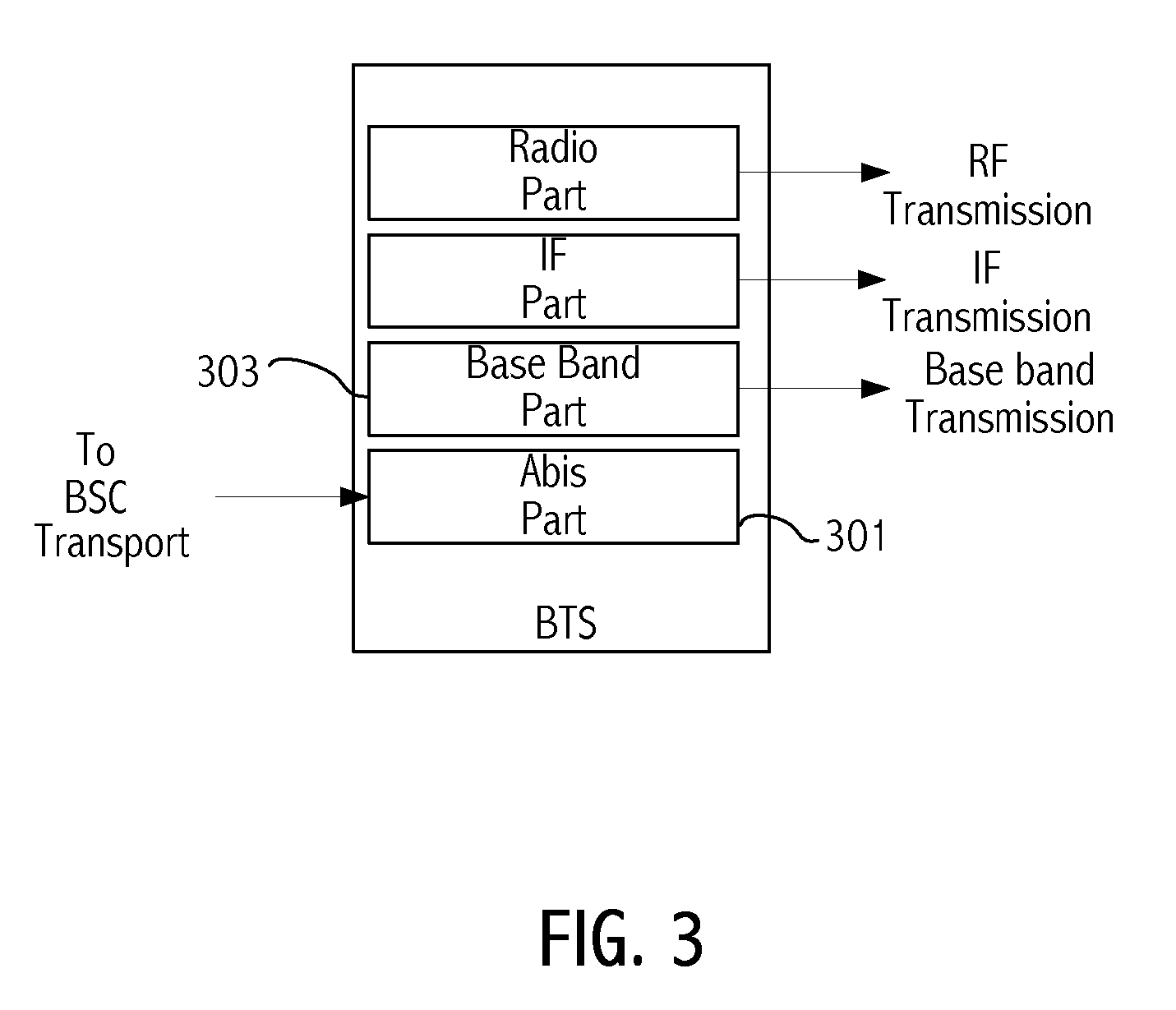Method and apparatus to maintain network coverage when using a transport media to communicate with a remote antenna
a technology of transport media and remote antenna, which is applied in the direction of transmission monitoring, electrical apparatus, synchronisation arrangement, etc., can solve the problems of b> starting to “overlap, lack of efficient sharing of radio resources, and high backhaul requirements of these systems, so as to reduce the cell radius and limit the radio coverage of the cell and the network
- Summary
- Abstract
- Description
- Claims
- Application Information
AI Technical Summary
Benefits of technology
Problems solved by technology
Method used
Image
Examples
Embodiment Construction
)
[0029]The centralized architecture shown in FIG. 2 allows sharing of radio resources for cell sites from a central location. Such an architecture provides the potential for significant hardware savings since pooled-radio / channel processing units can be shared across multiple cell sites. The centralized architecture can provide centralized management, which can provide savings in operation and maintenance as well as lending itself to utilization of software defined radio concepts. The architecture illustrated in FIG. 2 utilizes centralized base station hotels 201 and 202 (also referred to herein as hosts), and replaces today's base transceiver stations (BTSs) by much simpler radio heads (RHs). In one embodiment, the RHs provide little more than digital / analog (D / A) conversion and radio / frequency (RF) amplification and filtering.
[0030]One goal of the architecture described herein is to provide a ubiquitous and affordable access to each RH by its BTS host. Referring again to FIG. 2, a...
PUM
 Login to View More
Login to View More Abstract
Description
Claims
Application Information
 Login to View More
Login to View More - R&D
- Intellectual Property
- Life Sciences
- Materials
- Tech Scout
- Unparalleled Data Quality
- Higher Quality Content
- 60% Fewer Hallucinations
Browse by: Latest US Patents, China's latest patents, Technical Efficacy Thesaurus, Application Domain, Technology Topic, Popular Technical Reports.
© 2025 PatSnap. All rights reserved.Legal|Privacy policy|Modern Slavery Act Transparency Statement|Sitemap|About US| Contact US: help@patsnap.com



